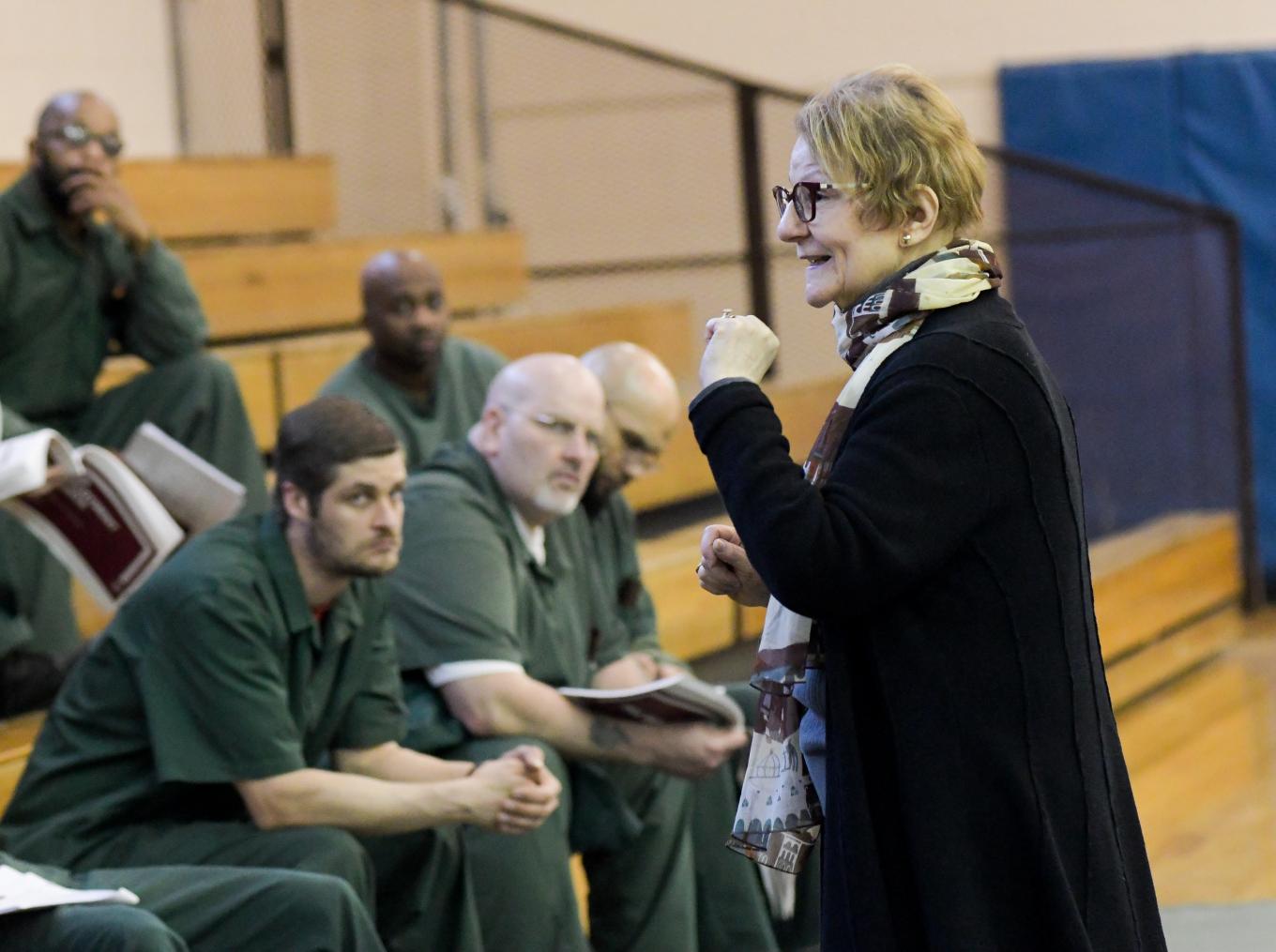
Our Training Our Impact
Prison Training

We educate job seekers with criminal records about their legal rights to help them integrate into the workforce.
Nearly one in three U.S. adults – 70 million Americans – has a criminal record on file that may be reported on a routine background check. Having even a minor criminal record, such as a misdemeanor or even an arrest without a conviction, can present obstacles to employment. Communities of color are disproportionately affected. To meet this challenge, we are committed to educating justice-involved individuals, whether incarcerated or on parole, to reduce recidivism, promote public safety, and control taxpayer costs.
Our program of employment rights and criminal record education is a necessary part of any workforce development program for justice-involved individuals. It provides job seekers with information on how to:
- Obtain a DCJS RAP sheet, FBI RAP sheet, OCA record, and CRA background check in order to accurately answer questions about their history;
- Identify inaccuracies on any of the criminal records and make corrections;
- Determine eligibility and application procedures for Certificates and Sealing;
- Utilize all eight factors of Article 23-A for employment and occupational licenses;
- Enforce rights through the NYS Division of Human Rights, NYC Commission on Human Rights (and other local agencies), FTC, and Article 78 petitions; and
- Utilize Ban the Box, the Fair Credit Reporting Act, and Title VII.
Since program inception, 1000+ people have been trained in our employment rights and criminal record education course offered at Queensboro Correctional Facility and Cornell Project for Records Assistance (Census Remedy Project). 88% of participants who submitted an evaluation indicated that the training increased their knowledge about their employment rights and when an employer can ask about a criminal record (additional data available on request).
Testimonial

"This is something that should be done often because we are in need of things like this to make our life better and become successful.”
Tompkins County Participant
In the Media
As part of their orientation process, incarcerated individuals at the all-male Queensboro Correctional Facility in Queens, New York are now required to take a “Know Your Employment Rights” course operated by Cornell’s ILR school.
The course covers employment rights and strategies for reintegrating incarcerated individuals into the workforce after their release. It is taught by Timothy McNutt former prosecutor who now serves as director of CJEI, and program specialist Rachel Joseph.
About CJEI

The Criminal Justice and Employment Initiative (CJEI) improves employment opportunities for people with criminal records by designing and delivering legal employment training to close information gaps and implement best practices with an aim towards integrating job seekers with criminal records into the workforce.
To learn more about our training, visit the the CJEI website.
